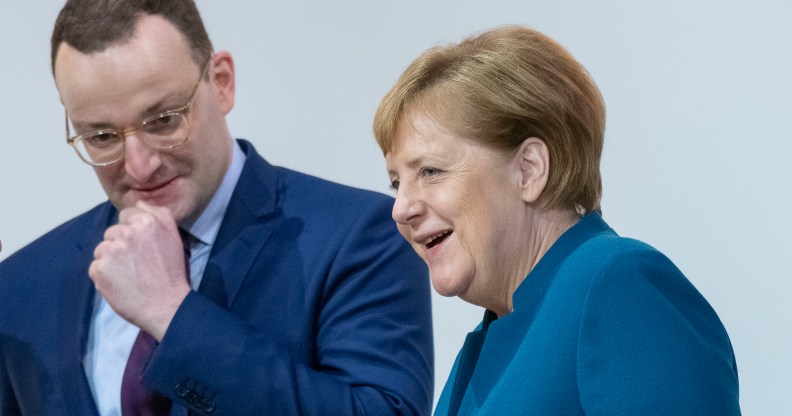Germany plans to ban gay cure therapy

Germany’s Health Minister, Jens Spahn, announces his plans to ban conversion therapies at a press conference in Berlin (thelocal.de)
Germany plans to push ahead with a ban on gay cure therapy, the country’s health minister has said.
Germany’s health minister Jens Spahn, the country’s most senior gay politician, told newspaper Die Tageszeitung that he would seek a ban on the discredited practice.
In the February 15 interview he said: “Homosexuality is not a disease and it doesn’t need to be cured. That’s why I’m in favour of a ban on conversion therapy.
“I do not believe in these therapies because of my own sexual orientation. I [believe] that God has something in mind.”
Spahn said the challenge was in “practical implementation” of a ban, adding that he will seek to shape the law with the country’s Minister of Justice Katarina Barley.
Jens Spahn: Germany will go ‘as far as possible’ to outlaw gay cure therapy
The politician said: “The law must be clear enough to make an impact.”
He added that Germany would be looking at the models of existing conversion therapy bans internationally.

Chancellor of Germany Angela Merkel speaks with the Member of the German Parliament, Jens Spahn during the 29th annual congress of the Christian Democrats (CDU) on December 7, 2016 in Essen, Germany. (Volker Hartmann/Getty)
15 US states including New York have passed laws banning conversion therapy on minors, while Malta was the first European country to outlaw the practice in 2016.
Spahn said he would aim to get agreement on the issue by the summer, adding that he would like the law to go “as far as possible” to stamp out conversion therapy.
The politician denied his actions may upset the religious factions inside the governing conservative CDU/CSU, adding that he does not believe any of the party’s MPs believe in conversion therapy.
Germany’s cabinet not always united on LGBT+ issues
However, the party has proven divided on LGBT+ issues before.
In November, CDU education minister Anja Karliczek faced a backlash for comments about same-sex marriage and gay parents.
Karliczek had said she was unsettled by the fast pace of change in the country, calling for a “study” into the impact of gay parenting on children.
The comments led to a clash within the cabinet, with families minister Franziska Giffey emphasising: “Studies have already shown that children develop just as well under homosexual partnerships as they do in families with mothers and fathers…what counts is that people lovingly take care of their children.”
Spahn was one of three candidates who put their name forward in November to succeed Chancellor Angela Merkel when she stands down ahead of elections in 2021.
The conservative lawmaker lost out to Annegret Kramp-Karrenbauer, the favourite of the Merkel camp, in the race

